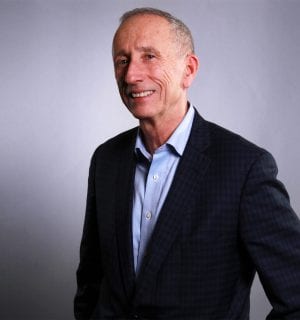News and Insights
Applying Today’s Lessons to a Post-COVID Future
April 29, 2020
What will we learn from this global crisis that will ensure a brighter future for all?
Renowned Spanish philosopher George Santayana, in 1905, wrote, “Those who cannot remember the past are condemned to repeat it.”
You probably know where I am going with this given the pandemic times we currently are living through. The most obvious question facing all of us in 2020 is what will we learn from this global crisis, and looking ahead to 2025, what will look differently in the world as a result.
In recent weeks, I have tried to look ahead—through faith, common sense and optimism—to answer these questions which confront capitalism as we know it, the role of government and civil society. As Anthony Mackay of the National Center on Education and Economy said so well, “Our collective capacity to cooperate, collaborate and jointly problem solve will be the determinants of our success—at every level of governance, business and communities.”
Shepherd University president Mary Hendrix, in thinking through where we come out of this in 2025, says, “My hope is we will be a little kinder to each other, less political in our rhetoric and criticism and more appreciative for what we have because of everything we lost to an unprecedented deadly virus.”
“This pandemic might actually accomplish something the progressives have been driving toward—a more humane kind of capitalism,” said Charles Goldstuck, founder and co-CEO of Hitco Entertainment.
Looking ahead to 2025, Amplify CEO Larry Berger pointedly notes that “ignorance and denial will no longer be fashionable.”
From my conversations with these thought leaders, a smart and effective time capsule for 2025 should be geared to education, health and economic equity, human intellect and an inter-connected planet that is populated with problem solvers.
What follows is some additional insight from this leadership quartet:
- “By 2025, the winning momentum will have tipped toward those who accept how interdependent we are, and how we have no choice but to work together on the health of our planet, the health and fairness of our economy and the health and fairness of our health care.” Larry Berger (Amplify)
- “Looking to 2025, businesses will take more responsibility for providing a better safety net for employees. Government will be better prepared to deal with these disaster situations, as the obvious 2020 response failure will loom large over these kinds of threats. There will be more collaboration among nations, however the relationship between the U.S. versus Russia and China will continue to challenge the global community.” Charles Goldstuck (Hitco)
- “We as a nation are learning from this pandemic to be more self-reliant—in the industries of pharmaceuticals, diagnostic testing, vaccines and medical equipment. Without question, COVID-19 took us by surprise, and we have been trying to adjust to the consequences of its global impact and its deleterious effect on our healthcare system, our economy and our human intellectual capital. As a university president, I see this crisis as a living lesson for the next generation of leaders and model citizens—they are watching how we have responded, and they will be better prepared to act more quickly and strategically.” Mary Hendrix (Shepherd University)
- “By 2025, we will have accelerated and expanded the transition to learning eco systems—learning systems that are human-centered, that build the capacity of young people and people at all stages of the life cycle, to be complex problem solvers and responsible local and global citizens. We are in the Decisive Decade where the environmental crisis and ever-increasing inequality confront us at the level of catastrophe. If our learning systems can harness the agency of young people and enabling technologies and provide deep learning to all citizens to shape how we can live and work in sustainable ways, then we can be the authors of our own human evolution—not the victims of pandemics.” Anthony Mackay (National Center on Education and the Economy)
